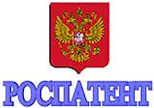
Tuesday, January 9 there will be a webinar about sequence listings. The webinar is free of charge. This webinar will be presented by two experienced practitioners, Suzannah K. Sundby and Carl Oppedahl.
As of right now, the number of people who have signed up for this webinar is less than the number of people in the world. This might mean that you have not signed up for this webinar. Which then raises the question:
Why have you not signed up for this webinar?
For more information, or to register for this free webinar about sequence listings, click here.

If you know someone who might want to attend this free webinar about sequence listings, you will probably be doing them a favor if you pass this information on to them.

 It will be recalled (see
It will be recalled (see 
